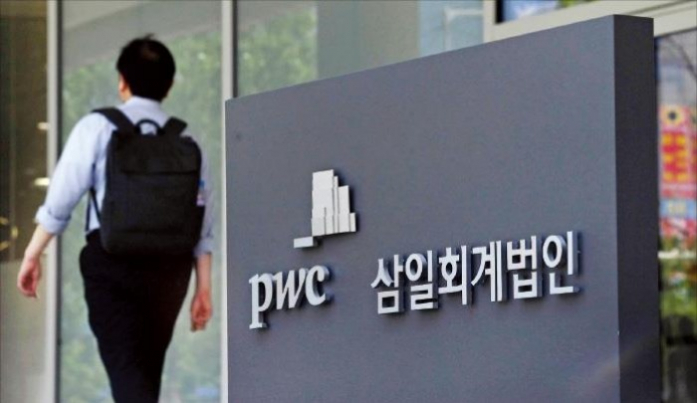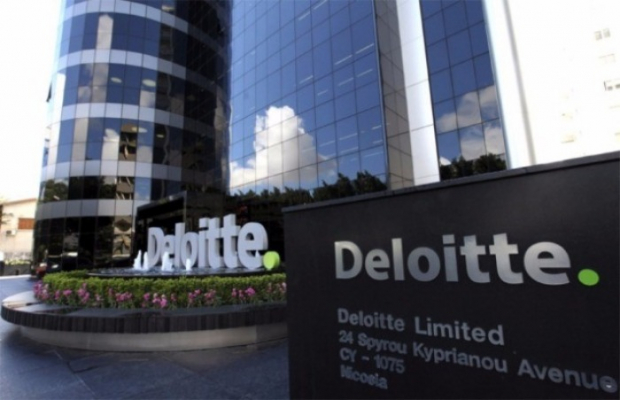Regulations
S.Korean auditors enjoy sharp pay rise under new laws
Financial regulators are poised to further tighten auditing and disclosure rules
By Jun 19, 2023 (Gmt+09:00)
2
Min read
Most Read
LG Chem to sell water filter business to Glenwood PE for $692 million


Kyobo Life poised to buy Japan’s SBI Group-owned savings bank


KT&G eyes overseas M&A after rejecting activist fund's offer


StockX in merger talks with Naver’s online reseller Kream


Mirae Asset to be named Korea Post’s core real estate fund operator



The average salary of accountants at Big Four accounting firms in South Korea has more than doubled over the past few years, as financial regulators continue to tighten accounting and auditing regulations to enhance corporate transparency.
Their annual salaries averaged 134.2 million won ($105,000) as of the end of the fiscal year 2021. That is 2.5 times more than their average pay in 2017, according to the Financial Supervisory Service and the Korea Listed Companies Association.
In late 2007, South Korea enacted new audit laws, which stipulate that companies must change their outside auditors on a regular basis under the supervision of financial authorities. They are also required to spend a certain amount of time on having their financial statements audited.
That resulted in the sharp increase in demand for third-party auditors particularly from the Big Four -- Samil PwC, Samjeong KPMG, Deloitte Anjin and EY Hanyoung – and their hourly rate as well.
Domestic companies spent 2,447 hours on average in 2021 to get their financial results audited, compared to 1,700 hours they spent in 2017.
Over the same period, the average wage of employees at the country’s listed companies has climbed 19.9% to 60.3 million won, less than half the 134.2 million won in the average salary of Big Four accountants.
Large companies with assets of more than 2 trillion won saw their employees’ annual salaries rise 31.8% to 98.6 million won on average during the period.

Back in 2017, accountants’ average salary stood at 54.6 million won per year, lower than the 73.8 million won paid for listed companies’ employees on average.
Since late 2017, the hourly rate charged by the Big Four has risen to 101,000 won from 74,000 won, with their revenue up over 20% to a total of 3 trillion won in the fiscal year 2021.
That led accountants to flock to accounting firms, instead of working as in-house auditors of companies and state-run institutions.
In 2021, 57.4% of registered accountants in South Korea worked for accounting companies. That compared with 20.8% and 42.6% for the UK and Japan, respectively.
To meet the rising demand for accountants, South Korea has increased the certified public accountant (CPA) examination pass rate and 1,100 takers passed the test in 2021, versus 850 in 2018.
But accountants are expected to remain in short supply for companies, under growing pressure to comply with stricter auditing and disclosure rules.
Starting this year, large business groups must have their accounting management systems for consolidated financial results reviewed by auditors.
Additionally, financial regulators are seeking to make it mandatory for listed companies to file environmental, social and governance-related disclosures.
Write to Han-Gyeol Seon and Dong-Hun Lee at always@hankyung.com
Yeonhee Kim edited this article.
More to Read
-

-
 Korean chipmakersSamsung in talks to supply customized HBM4 to Nvidia, Broadcom, Google
Korean chipmakersSamsung in talks to supply customized HBM4 to Nvidia, Broadcom, Google23 HOURS AGO
-
 EnergyLS Cable breaks ground on $681 mn underwater cable plant in Chesapeake
EnergyLS Cable breaks ground on $681 mn underwater cable plant in ChesapeakeApr 29, 2025 (Gmt+09:00)
-
 Business & PoliticsUS tariffs add risk premium to dollar assets: Maurice Obstfeld
Business & PoliticsUS tariffs add risk premium to dollar assets: Maurice ObstfeldApr 29, 2025 (Gmt+09:00)
-

Comment 0
LOG IN


